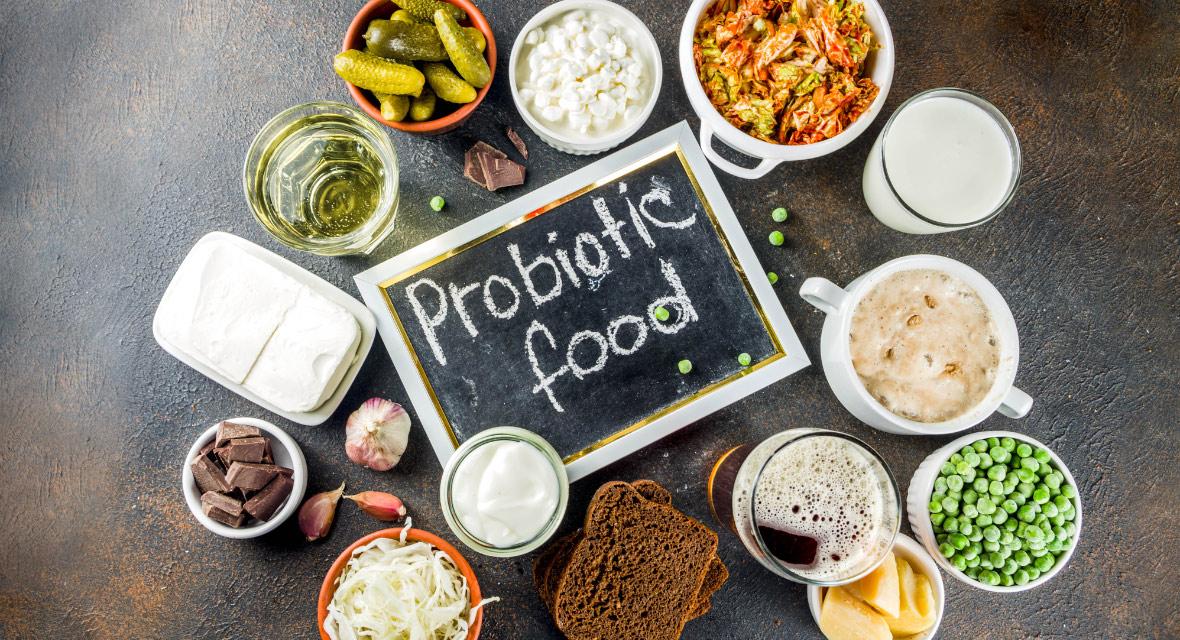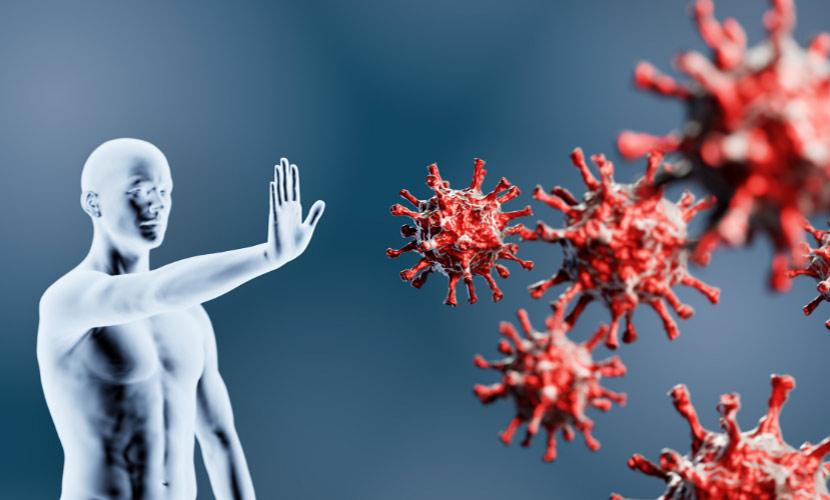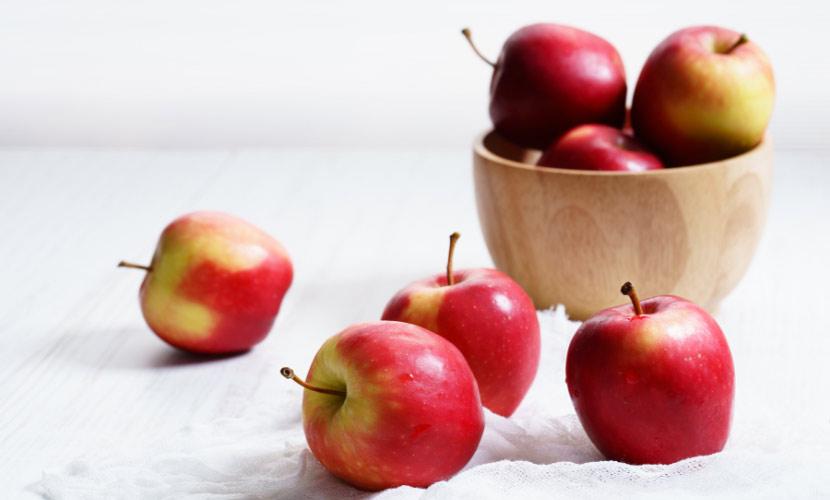🏆 As seen and loved on Shark Tank Dubai 🏆

Top 9 Benefits of Probiotics and Prebiotics
Benefits of Probiotics and Prebiotics
Your body reacts according to what you consume. Probiotics are the beneficial natural bacteria that live inside our bodies. Prebiotics are the food for these good bacteria, and these come in the form of carbs that the human body can't digest.
There are approximately 39-300 trillion bacteria present in our bodies. The group of colon bacteria is known as gut flora. They feed on dietary fibers, which help them produce nutrients for our colon cells, resulting in better gut health.
Probiotics are further segmented into bacteria that are harmless and that cause diseases. About 300-500 types of bacterial species can be found in our gut.
Friendly intestinal bacteria have shown remarkable benefits for our body, such as weight loss, improved digestive system, youthful skin, stronger immune system, and minimal risk of ailments.
Probiotics supplements are taken to fill up our gut with beneficial microbes. It is also found in food items prepared from the process of fermentation. Experts term gut flora as the “forgotten organ” since its metabolic activities are the same as other organs in the human body.
The gut microbiome performs significant functions like the production of vitamins (essentially vitamins K and B). It also breaks complex fibers into short-chain fats such as acetate, butyrate, and propionate, contributing to various metabolic operations.
Reports suggest that gut bacteria imbalance is the home to various chronic diseases like obesity, anxiety, cancer, type 2 diabetes, etc. Consuming a balanced diet containing prebiotics and probiotics can help you stabilize your gut flora.
Distinctions between Probiotics and Prebiotics
Typically, prebiotics is defined as the non-digestible unique form of fibers and carbs. In contrast, probiotics are the live microorganisms that live within our body and offer various health advantages.
Prebiotics in powder form can endure acid, cold, and heat On the other hand, probiotics are delicate in nature, and they can't survive stomach acid and heat. Bad gut bacteria can sometimes overrun good bacteria.
Nourishing and satisfying the nutritional needs of the gut flora is the primary function of the prebiotics. Fighting and protecting our gut from harmful microorganisms is the primary role of probiotics.
Sources of prebiotics are soybeans, oats, inulin sources, unrefined wheat, and barley. And sources of probiotics are bifidobacterium, lactobacilli, etc. Including these ingredients would help complete a healthy meal.
Top 9 Benefits of Probiotics and Prebiotics
Improves digestion

Intake of enough probiotics and prebiotics leads to a better digestive system. It produces essential enzymes and chemicals that reduce harmful microbes and makes the digestion process faster.
Anti-aging
Research shows that probiotics have anti-aging properties and increase the power of replicating the cells. Therefore, you can maintain rejuvenated and youthful skin just by adding some of the pro and prebiotics sources to your everyday meals.
Prevents diseases
Since it includes antioxidants, anticancer, and other properties, it helps you stay away from chronic diseases.
Improves mental health
Gut microbiota positively impacts our mental health. It supports the treatment of stress, anxiety, depression, and borderline personality disorder, along with other mental illnesses.
Controls high blood pressure
Milk fermented with Lactobacillus helps in lowering blood pressure. Consuming pre and probiotics increases vitamin D that prevents high blood pressure.
Manages cholesterol
Consuming gut-friendly bacteria can reduce bad cholesterol and help you maintain a healthy heart.
Prevents diarrhea
Intake of antibiotics for a long time can lead to diarrhea. Therefore, health experts recommend having more prebiotics and probiotics for preventing or reducing the risk of diarrhea.
Stronger immune system

Several probiotics can enhance the immune system which further contributes to the prevention of diseases and infections.
Other benefits
It protects against vaginal and urinary tract infections. It also reduces ulcers and gut infections. The consumption of probiotics and prebiotics maintains mucosal integrity and accelerates the cell-repairing process. Rebuilding hormones, forming and maintaining respiratory microbial communities, and pre-digestion of proteins are other notable benefits.
Prebiotics and Probiotics Food Items to Include in Your Daily Diet
Garlic
Garlic is a prebiotic herb that is rich in antioxidants, anti-inflammatory, and lipid-lowering properties. It is tasteful and promotes the growth of beneficial gut microbes.
It reduces the risk of cardiovascular diseases and lowers the blood glucose level. Also, it protects against asthma.
Onions
It's a versatile vegetable with numerous health benefits. Fructooligosaccharides (FOS) and inulin are abundant in them. FOS helps to balance the good bacteria in the gut and breaks down the complicated fat. It also aids in the development of our immune system.
Onions offer cancer-fighting qualities. It also has antibacterial capabilities and has been shown to assist our cardiovascular system.
Asparagus
It's also a good source of prebiotics. It helps to maintain optimal blood glucose levels and enhances digestive health. It assists in the prevention of cancer.
Bananas
Bananas are a good source of minerals, fiber, and vitamins. Unripe bananas have more prebiotic content.
Oats
Oats are a healthy prebiotic source. It comprises majorly of beta-glucan fiber.
Apples

Apple is a juicy and yummy fruit containing fibers. The pectin fibers in apples have prebiotic advantages. It decreases the production of harmful microbes.
Flaxseeds
They are an excellent source of prebiotics. It promotes the population of healthy gut microorganisms. Flaxseeds are tiny superfoods that are equipped with anticancer and antioxidant properties and stimulate regular bowel movements.
Yogurt
It is one of the popular sources of probiotics and improves gut health. It is made from milk by the process of fermentation that promotes friendly bacteria. It has excellent benefits for people diagnosed with hypertension. The impact of diarrhea can be minimized with the intake of yogurt.
Cheese
Cheese prepared with unpasteurized milk is a source of probiotics. Cottage cheese and Parmigiano Reggiano are some of the examples that comprise gut microbiomes.
Pickles
Pickles made with saltwater (not with vinegar) provide probiotic values to our gut. It is a traditional recipe that improves our digestive health.
Final Thoughts
You should now have a good grasp of the advantages of having a healthy gut flora. We have a symbiotic connection with these bacteria, in which we give them water, food, and habitat, and they improve nearly all of our biological processes in return.
To put it another way, prebiotics is the three-meal course for probiotics that can help with gastrointestinal health.
If you are searching for various food options in probiotics and prebiotics, we at VMeals have got your back. We not only offer nutritious healthy meals but also provide meal plan delivery services. Additionally, you can speak with a professional nutritionist about your health difficulties, diet consumption, and other nutrition-related issues.
Just like you take care of other lifestyle practices, it is equally important to look after your gut/intestinal health, because an overall wellness meal plan is incomplete without the inclusion of probiotics and prebiotics.
Reach out to start your fitness journey with us!
Meal Plans
Delivery Details
Legal Information
© 2020-2026 VMeals. All rights reserved. VMeals™ is a trademark of Flip Side Restaurant and Cafe L.L.C
We accept
